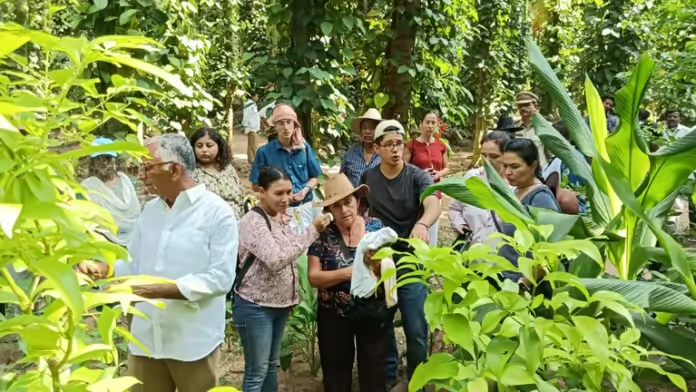GUNTUR: The Andhra Pradesh Community Managed Natural Farming (APCNF) programme is emerging as a significant response to global biodiversity and climate crises, promoting a nature-based approach to agriculture. Launched in 2015 by the Rythu Sadhikaraka Samstha (RySS) and the Andhra Pradesh government, the initiative, which started as a means to introduce cost-effective and chemical-free farming, has now become a global phenomenon, attracting delegations from over 45 countries.
With 10,37,617 farmers in 4,123 villages practising natural farming on 12,16,000 acres, the programme has shown transformative results in Andhra Pradesh.
Following its worldwide recognition, RYSS is now providing technical and academic assistance to 10 Indian States, including Madhya Pradesh, Rajasthan, Meghalaya, Maharashtra, Chhattisgarh, Jharkhand, Kerala, Karnataka, Tamil Nadu, Telangana, and countries such as Zambia already.
Discussions were underway to initiate the same in the countries such as Indonesia, Egypt, Sri Lanka, Mexico, Kenya, Malawi, Rwanda, and the UAE in the next coming months.
Recently, a nine-member delegation from Mexico visited AP to study APCNF models and techniques.
During their seven-day tour, the delegates visited agricultural fields in both semi-arid Rayalaseema and irrigated regions of Eluru district. They interacted with farmers, self-help group (SHG) women, resource persons, and farmer scientists. Speaking to TNIE, HLPE-CFS Food Security and Nutrition Researcher and Member Nilda Cecilia Elizondo, expressed that APCNF could serve as a global solution for achieving food security. She noted that traditional agricultural practices driven by the green revolution have contributed to soil degradation, reduced nutrients, and global warming, whereas APCNF offers a holistic alternative.
The programme’s nine principles, including year-round soil cover, diverse crops, minimal soil disturbance, and pest management through botanical extracts, align closely with the frameworks of HLPE, making it adaptable worldwide


